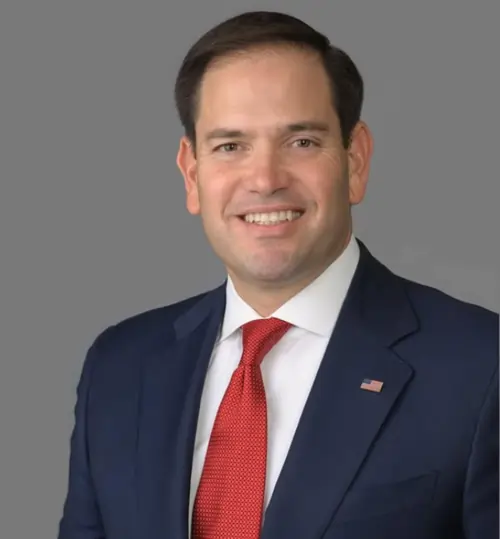
Marco Rubio’s Vision: Confronting China and Reimagining NATO’s Role
Marco Rubio, the seasoned U.S. Senator from Florida, stands at the crossroads of global diplomacy and national security. A man shaped by his Cuban heritage and unwavering belief in democracy, Rubio has consistently championed policies that blend patriotism with pragmatism. His latest call to action? Elevating NATO’s mission to address China as a rising global threat.
A Global Advocate for Security
Rubio’s foreign policy platform is a masterclass in strategic foresight. While NATO traditionally focuses on European security, Rubio argues that the alliance must adapt to a world where China’s influence grows unchecked. From economic dominance to technological espionage, Rubio sees China’s expanding footprint as a direct challenge to democratic values.
This isn’t mere rhetoric. Rubio’s active role on the Senate Foreign Relations and Intelligence Committees has positioned him as a thought leader on how the West should address emerging global risks. By urging NATO to consider China a “top-tier threat,” Rubio bridges the gap between traditional alliances and modern geopolitical realities.
Why NATO Needs to Focus on China
In Rubio’s eyes, NATO’s relevance hinges on its ability to adapt. Here’s why:
- China’s Economic Muscle: From its Belt and Road Initiative to trade dependencies, China’s economic strategies can erode sovereignty among NATO members and allied nations.
- Technological Dominance: Rubio highlights China’s advancements in AI, 5G networks, and cyber capabilities, which pose risks to national security.
- Strategic Partnerships: Rubio warns of China’s growing ties with authoritarian regimes like Russia, creating a united front against democratic alliances.
His vision for NATO isn’t about abandoning its roots but expanding its mission to safeguard freedom on a global scale.
A Legacy Rooted in Values
Rubio’s worldview is deeply personal. Born to Cuban immigrant parents, he understands the fragility of democracy and the consequences of authoritarian rule. This personal connection fuels his passion for protecting democratic institutions and advocating for human rights worldwide.
His Cuban heritage has also informed his stance on U.S.-Latin American relations, particularly regarding Cuba and Venezuela. Rubio believes these nations deserve freedom from oppressive regimes—and he’s not shy about calling out global players like China that support authoritarian leaders in the region.
Domestic Policy: A Conservative Pragmatist
At home, Rubio balances his global ambitions with a focus on the everyday American. Known for championing middle-class families, he’s advocated for tax reforms, small business support, and workforce development.
While his views on immigration have evolved, Rubio consistently emphasizes the need for secure borders and humane policies that reflect America’s values. His pragmatic approach often finds him walking the line between Republican orthodoxy and bipartisan collaboration.
Critics and Challenges
Rubio’s bold positions haven’t come without pushback. Critics argue that his focus on China and NATO risks overshadowing pressing domestic issues. Others have questioned his shifting stance on topics like climate change and immigration.
Still, Rubio remains steadfast, responding to critics with clarity and conviction. He believes that addressing global threats is inseparable from securing America’s future.
The Rubio Doctrine: A Future-Focused Legacy
Marco Rubio is more than a senator—he’s a storyteller, a strategist, and a son of immigrants who sees the world through the lens of resilience. His call for NATO to recognize China as a primary threat reflects his broader vision of a safer, freer, and more united world.
As the geopolitical landscape evolves, Rubio’s ideas could shape not just policy but the future of international alliances. His legacy lies in his ability to balance the personal with the global, the conservative with the pragmatic, and the challenges of today with the promise of tomorrow.
Disclaimer
This article offers an independent perspective on Marco Rubio’s leadership and policies, connecting his personal story to his professional impact. It is for informational purposes and does not represent Rubio or his office officially. (Kamarites)









